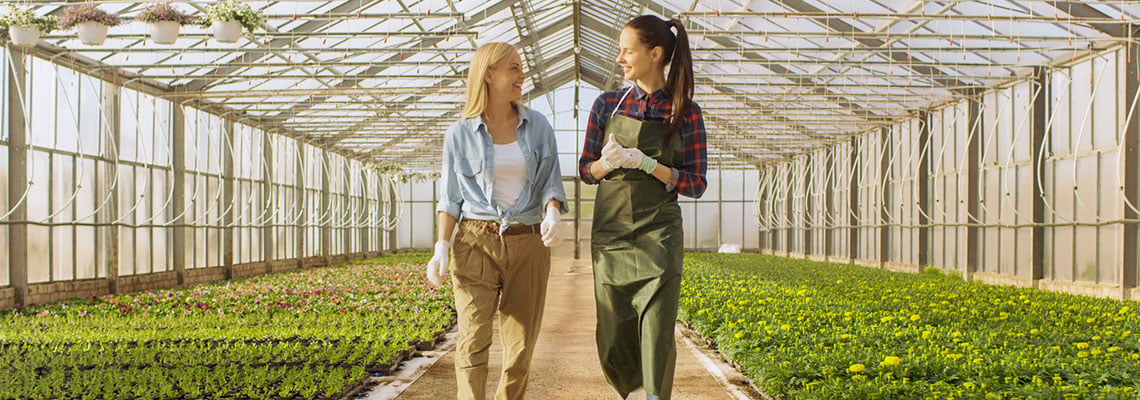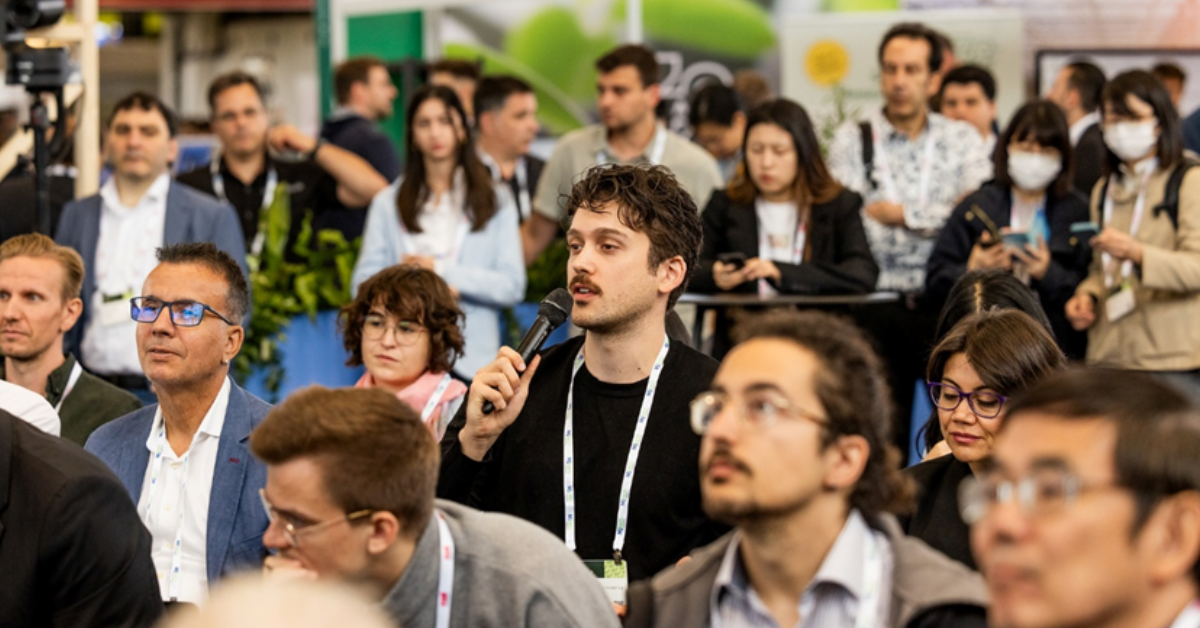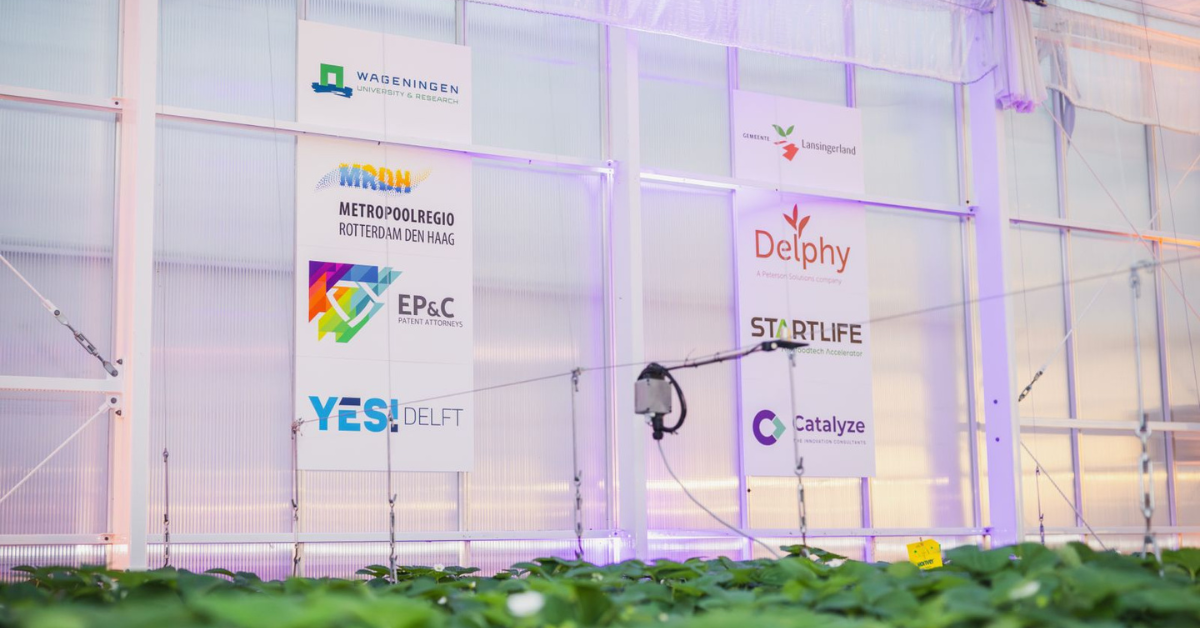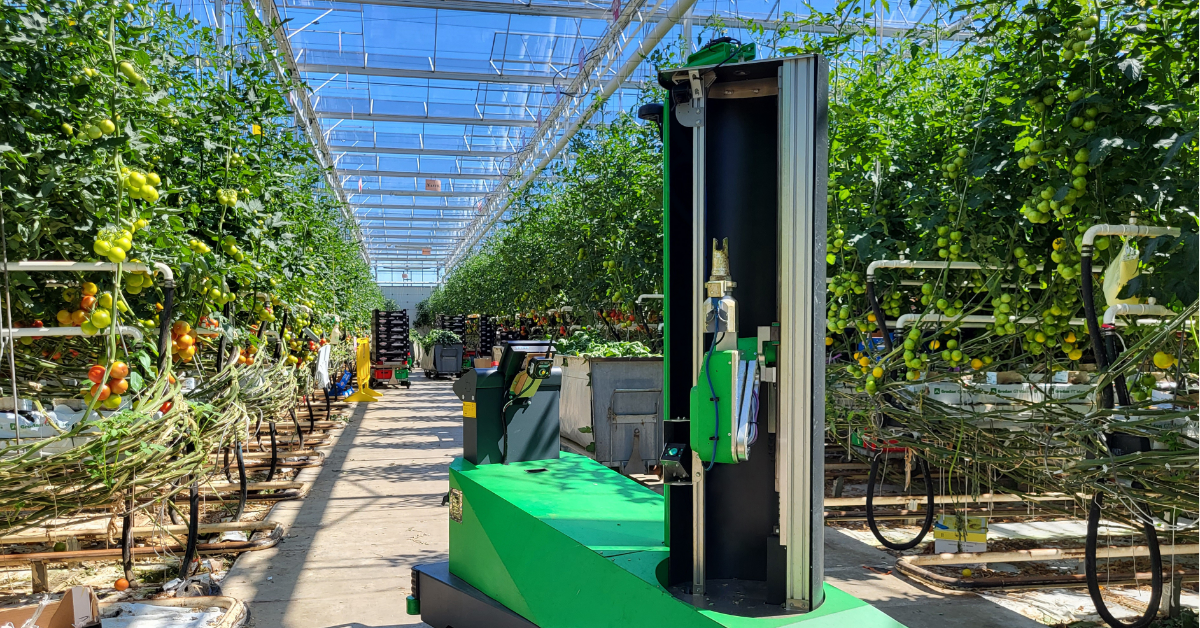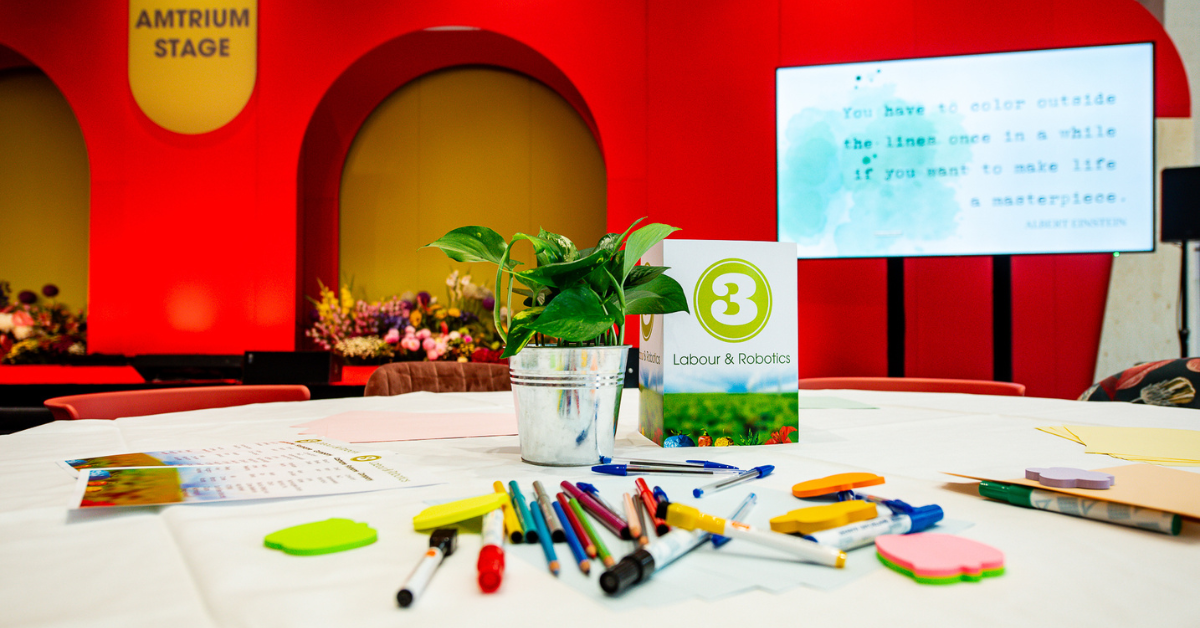Young Professionals in floriculture
 Leandra de Boef | GreenTech
Leandra de Boef | GreenTechIn this time of a tight labor market, we are all fighting for the same scarce employees. Take the group of young professionals, for example. Graduated not so long ago, gained some work experience in their first job or through side jobs or internships during their study. But especially, with enthusiasm for the profession that they practice or want to practice. In floriculture, we also like to compete with other sectors for these young people. We want to bring them in, bind them to us and let them mature in our sector.
In practice, however, this is not that easy, according to Anneke Postma, training and development consultant at Kasgroeit: "It is still very difficult. Partly because most young people do not know the horticultural sector well enough." To break this, we collaborate with universities and trainers with a non-agricultural background. For example, students do a research assignment at a horticultural company and get acquainted with a sector in which they are not at all familiar. "I think it is very important to bind young people to your company in this way," says Postma. "However, it takes us a lot of energy to find companies that want to participate in this. It is difficult to convince them because they do not immediately see a visible return on this investment in future staff."
What interests Young Professionals?
To get young people interested in the floriculture sector, it is becoming increasingly important to look closely and listen to what appeals to this group. Not only to focus on what the sector has to offer, but also to look at what it is that this group needs to find the sector interesting. "We are, of course, not the only sector that is targeting this target group. Take, for example, technology companies that have much more budget to invest in labor market communication," says Postma. "I think a large part of our horticultural sector is not yet fully aware of the importance of this labor market communication."
In the coming years, we get more and more to do with the thinking and behavior of young professionals. Older generations make way for this group that thinks differently and are critical about, for example, the climate, but certainly also about the agricultural sector. They also have completely different needs, just like every generation. Young Professionals want direction and self-management. It is not for nothing that many of them start for themselves. According to Postma, it is therefore high time to dare to look at the structure of organizations and the interpretation of job profiles. "I think we have to get rid of job profiles. It's mainly about daring to change."

A Young Professional in floriculture speaks
Stef Berkhout is a Young Professional in the floriculture sector, but one who has consciously chosen a career in horticulture. He is currently working as Manager Young Plants at the Dutch breeder Slijkerman Kalanchoe. Thanks to his interest in the work of his cousin, who was a gardener, Berkhout chose a green school at an early age, where he followed lessons such as plant cultivation. He didn't become a gardener though, but he did choose the training program for cultivation and business, with greenhouse horticulture as a specialization. After this, his curiosity led him to HAS Hogeschool in 's-Hertogenbosch. "Here too, the first two years, he focused on plants, but later I got interested in marketing, sales and business administration as well." Berkhout graduated with Global Trade and Business Management as a specialization and is now working at Slijkerman. In this work he enjoys helping growers, anywhere in the world, getting a step further. "Their success is my success. Every grower has different needs. One grower needs cultivation-technical support, while another grower may prefer to spar with you about the positioning of their product or company, “tells an enthusiastic Berkhout about his current job. "I think versatility is great and I am happy that I have received a broad education."
Little or no knowledge
Berkhout also regularly uses his enthusiasm to make upcoming talent enthusiastic for horticulture. He likes to work with education and gives tours at the company he works at. The best he likes it when people come to the company with little or no knowledge of the horticulture sector. "Because you can lead them through the fantastic process of breeding step by step. There are so many things more to do than just working with your hands in the soil, which unfortunately still is the image that many people have."
In floriculture, there is also a lot of demand for employees in HR, IT and technology. No affinity with horticulture is required for this. And what about management functions. For all these positions, it is precisely the people from outside the sector who can provide interesting cross-pollination.

Passion
As a Young Professional, Berkhout wants to tell other young people that it is important to discover your passion. To take time to do many different things and find out what you enjoy doing and what gives you energy. "If you have that clear, put a dot on the horizon. Where do you want to go and what do you want to achieve? Make it concrete and stay close to yourself. Then find a company where you get the space to take that course to bet." It’s important to search for and find a synergy. "See if you can take the company along on your way to the dot on the horizon? Or maybe you can piggyback on the back of a successful company?"
In the current labor market, there is more demand for labor than supply. This applies to many sectors and certainly also to the floriculture sector. "Benefit from it, but don't abuse it," says Berkhout. "If you want the company to give you the space you need, give them something in return."

Share your horticulture technology stories with us
Do you have an innovation, research results or an other interesting topic you would like to share with the international horticulture technology industry? The GreenTech website and social media channels are a great platform to showcase your stories!
Please contact our Brand Marketing Manager Murkje Koopmans.
Are you an GreenTech exhibitor?
Make sure you add your latest press releases to your Company Profile in the Exhibitor Portal for free exposure.
